
John King Fairbank was an American historian of China and United States–China relations. He taught at Harvard University from 1936 until his retirement in 1977. He is credited with building the field of Sinology in the United States after World War II with his organizational ability, his mentorship of students, support of fellow scholars, and formulation of basic concepts to be tested.

Jiang Menglin, also known as Chiang Monlin, was a Chinese educator, writer, and politician. Between 1919 and 1927, he also served as the President of Peking University. He later became the president of National Chekiang University. In the early 1950s, he was head of the Joint Commission on Rural Reconstruction in Taiwan.

Tsiang Tingfu, was a historian and diplomat of the Republic of China who published in English under the name T.F. Tsiang.
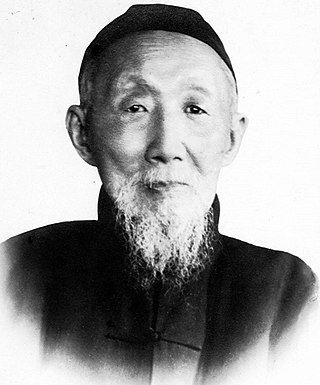
Ma Xiangbo was a Chinese Jesuit priest, scholar and educator in late-Qing and early-Republican China. He was one of the founders of Aurora University, Fu Jen Catholic University and Fudan University.
Baoding Military Academy or Paoting Military Academy was a military academy based in Baoding, during the late Qing dynasty and early Republic of China, in the first two decades of the 20th century. For a time, it was the most important military academy in China, and its cadets played prominent roles in the political and military history of the Republic of China. The Baoding Military Academy closed in 1923, but served as a model for the Whampoa Military Academy, which was founded in Guangzhou in 1924. It, along with the Yunnan Military Academy and the Whampoa Military Academy, was one of the “three major strategist cradles in modern China”. During the Second Sino-Japanese War, half of 300 divisions in China's armed forces were commanded by Whampoa graduates and one-third were Baoding cadets.
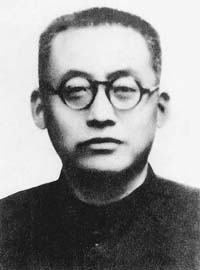
Tao Xingzhi, was a renowned Chinese educator and reformer in the Republic of China mainland era. He studied at Teachers College, Columbia University, and returned to China to champion progressive education. His career in China as a liberal educator was not derivative of John Dewey, as some have alleged, but creative and adaptive. He returned to China at a time when the American influence was zesty and self-confident, and his very name at that time (zhixing) meant "knowledge-action," reflecting the catch-phrase of the Neo-Confucian philosopher Wang Yangming which implied that once knowledge (zhi) had been obtained, then action (xing) would be easy.
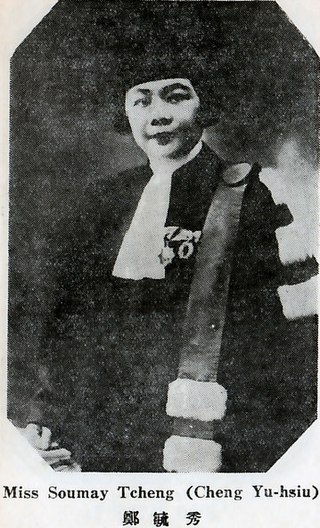
Zheng Yuxiu, was a Chinese lawyer, judge, revolutionary, and legislator. Zheng was the first female judge in modern Chinese history.
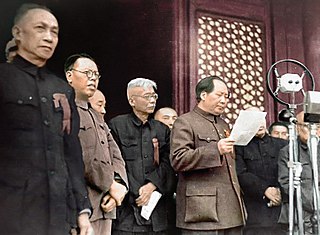
Sun–Joffe Manifesto or the Joint Manifesto of Sun and Joffe (孫文越飛宣言) was an agreement signed between Sun Yat-sen and Adolph Joffe on January 26, 1923, for the cooperation of Republic of China's Kuomintang and Soviet Union. The manifesto asserted that the Soviet system was not suitable for China and announced in general terms the willingness of Soviet to co-operate with the KMT in its struggle to unify China.
Zhang Peiyuan was a Han chinese general, commander of the Ili garrison. He fought against Uighur and Tungans during the Kumul revolt, but then secretly negotiated with the Tungan general Ma Zhongying to form an alliance against Sheng Shicai and the Soviet Union. Zhang's army had about 3,000 soldiers. They almost destroyed Sheng's armies but then the Soviet Union invaded Xinjiang and overran Zhang's forces. Zhang committed suicide to avoid capture by the Soviets at the Muzart Pass during a snow storm.
The Rt. Rev. Philip Lindel Tsen was a bishop of the Anglican Church in China. Tsen was the first Chinese Presiding Bishop of the Chung Hua Sheng Kung Hui and was succeeded by Bishop Robin Chen of the Diocese of Anhui province.
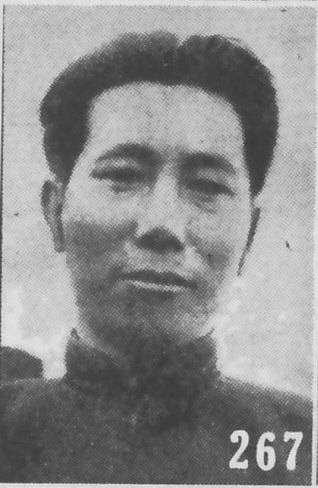
Serengdongrub, courtesy name Chü Ch'uan and also known under the Chinese name of Pai Yün-t'i, was an Inner Mongolian politician in the Republic of China. An ethnic Mongol, he was a native of Harqin Middle Banner.
Teng Ssu-yü was a Sinologist, bibliographer, and professor of history at Indiana University. Born in Hunan Province, Qing China, he died in Bloomington, Indiana, after being struck by a car. Teng was trained in China in both the traditional skills of the Confucian scholar and contemporary historical attitudes and techniques. When he came to the United States in 1937, he became a member of the founding generation of American China studies. He wrote not only specialized monographs and bibliographical tools for academics but also such broad studies for introductory students as China's Response to the West.
Eminent Chinese of the Ch'ing Period (1644–1912) (ECCP) is a biographical dictionary published in 1943 by the United States Government Printing Office, edited by Arthur W. Hummel, Sr., then head of the Orientalia Division of the Library of Congress. Hummel's chief collaborators were Dr. Tu Lien-che (杜聯喆) and Dr. Fang Chao-ying (房兆楹), Chinese scholars who were married to each other.

The Republican Party was a short-lived political party in the Republican era of China from 1912 to 1913.
Harold Zvi Schiffrin is professor of East Asian Studies and Sociology at the Hebrew University of Jerusalem and the founder of East Asian studies in Israel.
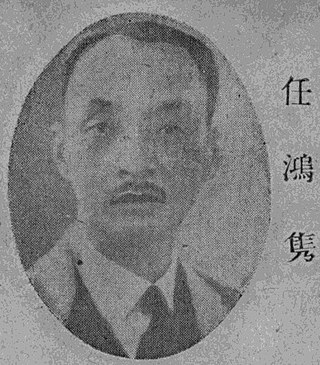
H. C. Zen was a Chinese politician, academic and educator who served as president of National Sichuan University from 1935–1937. He was a professor of Chemistry and served as vice president of what is now Nanjing University from 1923–1925. He was a founding member of the Science Society of China, a major science organization in the modern history of China initiated by Chinese students at Cornell University in 1914, and served as its president from 1914 to 1923.

Shanghai No. 2 High School is a public secondary school located in Shanghai, China.
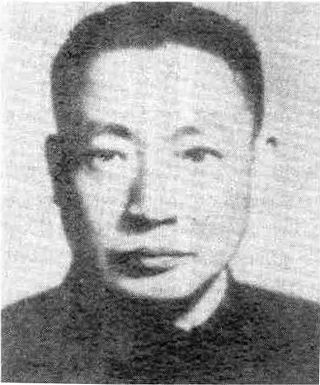
Mao Renfeng was a Republic of China general and spymaster who headed the Bureau of Investigation and Statistics from 1946 until his death, succeeding his childhood friend Dai Li, who died in a plane crash in 1946. Between 1946 and 1949, his spy agency played a prominent role in the Chinese Civil War. In 1949, he fled to Taiwan with the rest of the Nationalist government, where he died 7 years later.
Howard Lyon Boorman was a United States Foreign Service Officer who after retirement became best known for organizing and editing the Biographical Dictionary of Republican China a standard reference work commonly referred to simply as "Boorman."

Ye Dehui was a Chinese writer and editor active during the Qing dynasty and the Republican Era. Vacillating between academia, business, and civil service in his early life, Ye eventually established himself as a leading bibliophile and literatus. He was executed by the local government for his alleged counter-revolutionism.